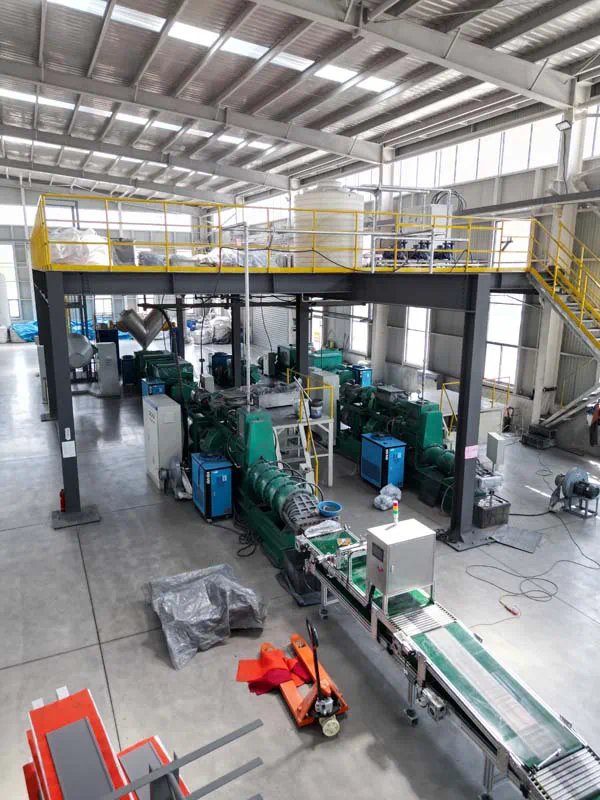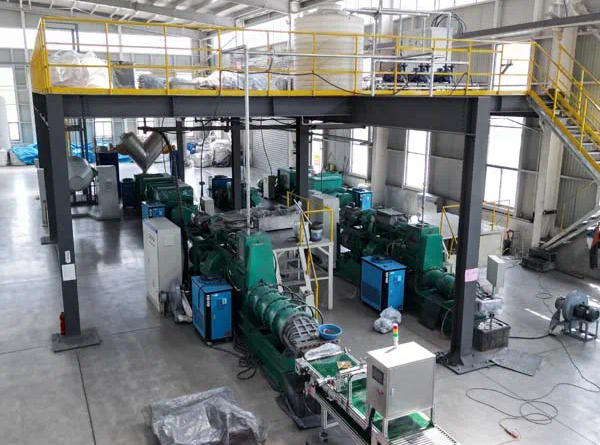Innovative Applications of Silicon Carbide in Intelligent Manufacturing
Silicon carbide (SiC), recognized for its exceptional properties, has emerged as a pivotal material in revolutionizing intelligent manufacturing processes. This article explores the diverse and dynamic applications of SiC across various facets of modern manufacturing, highlighting its transformative impact on efficiency, reliability, and sustainability.

Introduction to Silicon Carbide
Silicon carbide, a compound of silicon and carbon, boasts a unique combination of properties that make it highly desirable for advanced manufacturing applications. With a hardness rivaling that of diamond, excellent thermal conductivity, high strength, and exceptional chemical resistance, SiC stands out as a material capable of withstanding extreme conditions while maintaining structural integrity.
Properties of Silicon Carbide
SiC’s mechanical robustness and thermal stability enable its utilization in environments characterized by high temperatures, corrosive chemicals, and demanding mechanical stresses. These properties make it an ideal candidate for silicon carbide technology applications where traditional materials fall short.
SiC in Intelligent Manufacturing: Enhancing Efficiency and Precision
Role in Industrial Automation Systems
In the realm of intelligent manufacturing, Silicon Carbide plays a crucial role in enhancing automation systems. Its superior thermal conductivity and low thermal expansion coefficient contribute to efficient heat dissipation and thermal management in high-power electronics. This capability is pivotal in optimizing the performance and reliability of automated production lines.
Applications in Robotics and AI Integration
Integrating SiC components in robotics and artificial intelligence systems enhances their operational efficiency and reliability. The material’s high mechanical strength and low weight facilitate the development of lightweight, agile robots capable of performing intricate tasks with precision. Furthermore, SiC’s ability to operate at higher temperatures ensures sustained performance in challenging manufacturing environments.
Advanced Manufacturing Techniques Utilizing SiC
Additive Manufacturing (3D Printing)
The advent of SiC-based additive manufacturing has revolutionized the production of complex geometries and customized components. SiC’s excellent thermal conductivity and chemical stability enable precise control over the printing process, resulting in high-quality parts with enhanced mechanical properties. This capability opens new avenues for rapid prototyping and on-demand manufacturing in various industries.
SiC Coatings for Enhanced Wear and Corrosion Resistance
Incorporating SiC coatings on industrial equipment enhances their durability and longevity. These coatings provide superior resistance to wear, corrosion, and thermal degradation, thereby reducing maintenance costs and downtime in manufacturing operations. SiC’s compatibility with different substrates allows for tailored coating solutions that meet specific performance requirements across diverse applications.
Sustainability and Environmental Benefits
SiC’s Role in Energy Efficiency
The adoption of SiC-based power electronics contributes to significant energy savings in manufacturing processes. The material’s sic silicon carbide properties superior electrical properties enable higher efficiency and lower power losses in electrical conversion systems. This efficiency translates into reduced energy consumption, lower greenhouse gas emissions, and enhanced sustainability across the manufacturing sector.
Environmental Impact and Recycling Considerations
While SiC offers substantial environmental benefits through improved energy efficiency and reduced material consumption, its recycling and disposal present challenges due to its robust chemical stability. Efforts are underway to develop efficient recycling techniques that recover SiC from end-of-life products and manufacturing waste, thereby promoting a circular economy approach.
Future Trends and Innovations
Advancements in SiC Nanotechnology
Ongoing research in SiC nanotechnology aims to unlock new functionalities and applications in intelligent manufacturing. Nanoscale SiC materials exhibit unique electronic and optical properties that could revolutionize sensors, actuators, and communication technologies in smart factories. These innovations promise further enhancements in efficiency, reliability, and sustainability across manufacturing processes.
Integration of SiC with Emerging Technologies
The convergence of SiC with emerging technologies such as quantum computing and Internet of Things (IoT) holds promise for developing next-generation intelligent manufacturing systems. SiC’s compatibility with high-frequency, high-power applications positions it as a cornerstone material in advancing the capabilities of interconnected smart devices and systems.
Conclusion
In conclusion, Silicon Carbide stands at the forefront of innovation in intelligent manufacturing, driving advancements in efficiency, precision, and sustainability. Its exceptional properties and versatile applications across various manufacturing domains underscore its pivotal role in shaping the future of industrial automation and technological evolution. As research and development continue to expand the boundaries of SiC technology, the potential for transformative impact on global manufacturing capabilities remains immense.
https://hearingearly.com/




